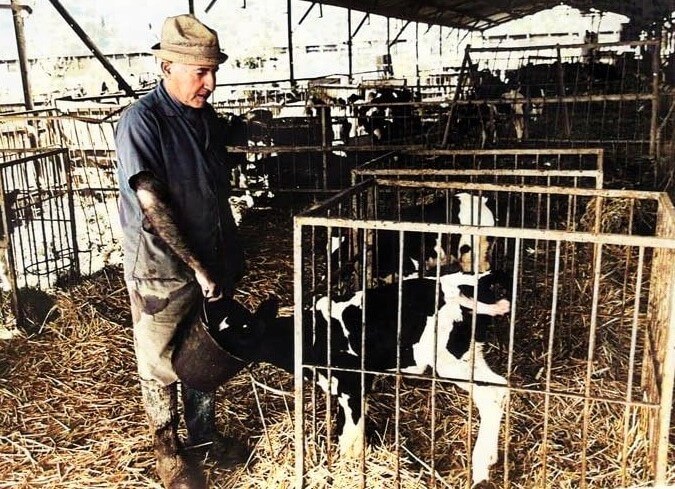The Torah promises that if we observe the mitzvot
and sincerely love God, we will enjoy timely
rain and bountiful crops:
וְנָתַתִּי עֵשֶׂב בְּשָׂדְךָ לִבְהֶמְתֶּךָ וְאָכַלְתָּ וְשָׂבָעְתָּ׃
“I will give plants in your field for your
animals; and you will eat and be satiated.”
(Deut. 11:15)
Rav Abba Aricha, the celebrated third-century scholar, called attention
to the order of the verse: first the
animals eat, and only then the people. He
learned from here that one should not eat
before first placing food before one’s animals.
Why is this? Should not people eat first, since
they are more important? Are not humans “the
crown of creation”?
Rav Kook explained that this Talmudic rule of etiquette
contains several moral lessons:
Given our central place in the universe, we have
a responsibility to look after all creatures.
Our food (and in the case of the farmer,
also his livelihood) is supplied by cows, chickens,
and so on. We should feed these animals
first as an expression of the fundamental gratitude
we should feel toward these creatures which provide
us with our basic needs.
If we lack food for a short time, we
may comfort ourselves with spiritual or intellectual pursuits.
This is an integral aspect of the human
soul, which is not sustained “by bread alone.”
Animals, however, have no such alternate outlets when
they are pained by hunger. Therefore, it is logical
to deal with the animal’s hunger first.
In purely physical aspects, animals are superior to humans.
Is there a human being who is stronger
than a bear, faster than a horse, more
agile than a cat? Our superiority over animals
lies exclusively in the spiritual realms: in our
intelligence and our higher aspirations. Therefore, when it comes
to physical sustenance, animals take precedence to humans, and by
right are served first.
(Sapphire from the Land of Israel. Adapted from Ein Eyah vol. II, p. 180)
Illustration image: Animal Industries at Kibbutz Ramat Yohanan (PikiWiki)






